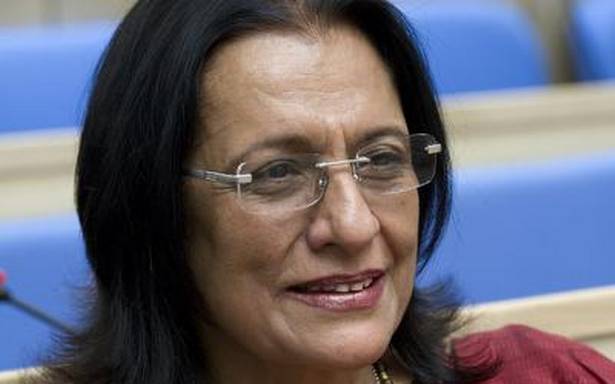With the world and India entering the middle phase in a two-pronged fight against the COVID-19 pandemic, including public health measures to curb the spread of the Wuhan coronavirus and the race to develop a viable vaccine solution, global and regional cooperation between nations has never before been as important as it is today. Poonam Khetrapal Singh, Regional Director, World Health Organisation South-East Asia Region, discussed the big questions on institutional learnings, transnational collaboration, and challenges for India with Narayan Lakshman. Edited excerpts:
How has the departure of the U.S. from WHO impact the organisation’s functioning and what measures can it take to shore up its finances?
WHO’s relationship with the United States is much broader and goes well beyond funding. It is about working together. The U.S. has been a vital partner to WHO since its creation in 1948. Over the years U.S. funds have supported programmes like polio eradication, health emergencies, TB, maternal health, immunisation etc. Together, we have worked to save the lives and improve the health of hundreds of millions of people around the world. WHO is reviewing the impact of the withdrawal of U.S. membership and will collaborate with partners for work to continue.
Also read: India will have to deliver vaccine on a scale never seen before: Oxford scientist Andrew Pollard
What are the big learnings for WHO from this crisis?
The pandemic has demonstrated that indeed health is central to the overall well-being of a country. We clearly need to invest more in strengthening our health systems and making them resilient to emergencies of pandemic proportion. A multi-sectoral approach is needed in pandemic preparedness and response.
Like in the past following the H1N1 pandemic and Ebola outbreak, WHO would conduct detailed evaluation po

